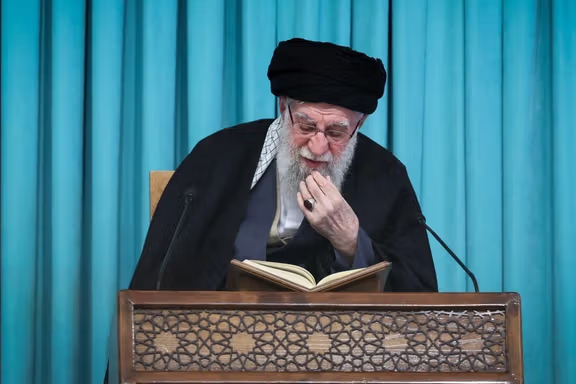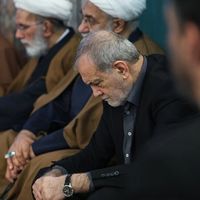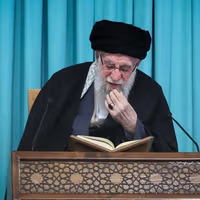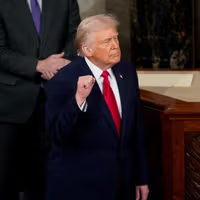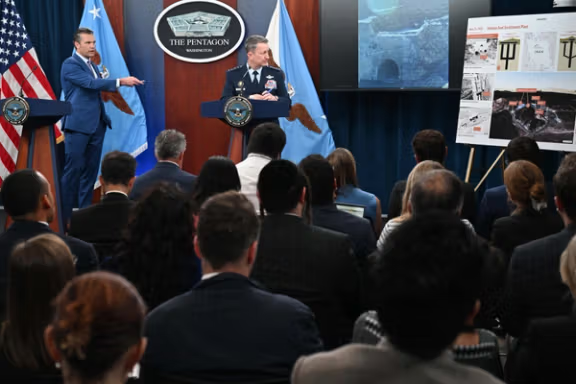Albanese said intelligence gathered by the Australian Security Intelligence Organisation showed Iran had directed attacks on a kosher restaurant in Sydney and a synagogue in Melbourne last year.
“These were extraordinary and dangerous acts of aggression orchestrated by a foreign nation on Australian soil,” Albanese told reporters.
ASIO Director-General Mike Burgess said Iran had “sought to disguise its involvement,” but the agency assessed it was behind the attacks on the Lewis Continental Kitchen in Sydney on 20 October last year, and the Adass Israel Synagogue in Melbourne on 6 December. He said Iran was “likely” behind further incidents targeting Jewish Australians.
Revolutionary Guards to be listed as terrorist group
Albanese also said Iran’s Revolutionary Guards would be listed as a terrorist group and confirmed Australia’s diplomats had left Tehran and were now in a third country.
Foreign Minister Penny Wong said Iran’s ambassador Ahmad Sadeghi and three officials must leave within a week. This is the first time Australia has expelled an envoy since World War Two.
The Australian government had previously warned Ambassador Ahmad Sadeghi over inflammatory social media posts, including a June message where he described Israel as “the most venomous snake on the planet” and a “genocidal regime.”
The remarks were made during the June conflict between Iran and Israel. A spokesperson told Iran International that Australia had made clear to Tehran that such rhetoric was unacceptable and urged all sides to de-escalate. Sadeghi had also faced past warnings for praising Hezbollah and calling for Israel’s destruction.
Politicians condemn Iran as Jewish community says fears were long ignored
Australian politicians condemned Iran’s alleged role in antisemitic attacks. Victorian Premier Jacinta Allan said her anger “will never subside,” calling the synagogue fire an act of terror. NSW Premier Chris Minns said the revelations were “deeply disturbing and utterly unacceptable.” Independent MP Allegra Spender, whose electorate includes the targeted Bondi restaurant, urged the government to continue working with Jewish communities to address security concerns.
Jewish community figures said the announcement confirmed long-standing concerns. Rabbi Gabi Kaltmann, whose synagogue is near the one targeted in Melbourne, called it “an I told you so moment” that had shaken community trust. Naomi Levin, CEO of the Jewish Community Council of Victoria, said the attacks were acts of international terrorism and a threat to national security.
Israel also welcomed the expulsion, with its embassy in Australia saying Iran was a threat not only to Jews or Israel but to the free world.
Former detainee says response is overdue
Australian academic Kylie Moore-Gilbert, who was imprisoned in Iran and is a vocal critic of Tehran, welcomed the move but said it had been too long coming.
In a post on X, she applauded the government's "decisive action against a brutal regime" but called it "a shame that it's taken them so long."
“For years now the Iranian-Australian community and other victims of the IRGC, including myself, have been literally screaming at rallies... that Iranian agents are operating brazenly and with few consequences here on Australian soil,” she wrote.
Travel warning for Australians in Iran
The Department of Foreign Affairs has advised Australians and dual nationals in Iran to leave the country if it is safe to do so. The Australian embassy in Tehran has suspended operations, and the government has warned of a high risk of arbitrary detention for foreigners.
Albanese said the government’s actions sent a message that foreign-directed aggression on Australian soil would not be tolerated.

